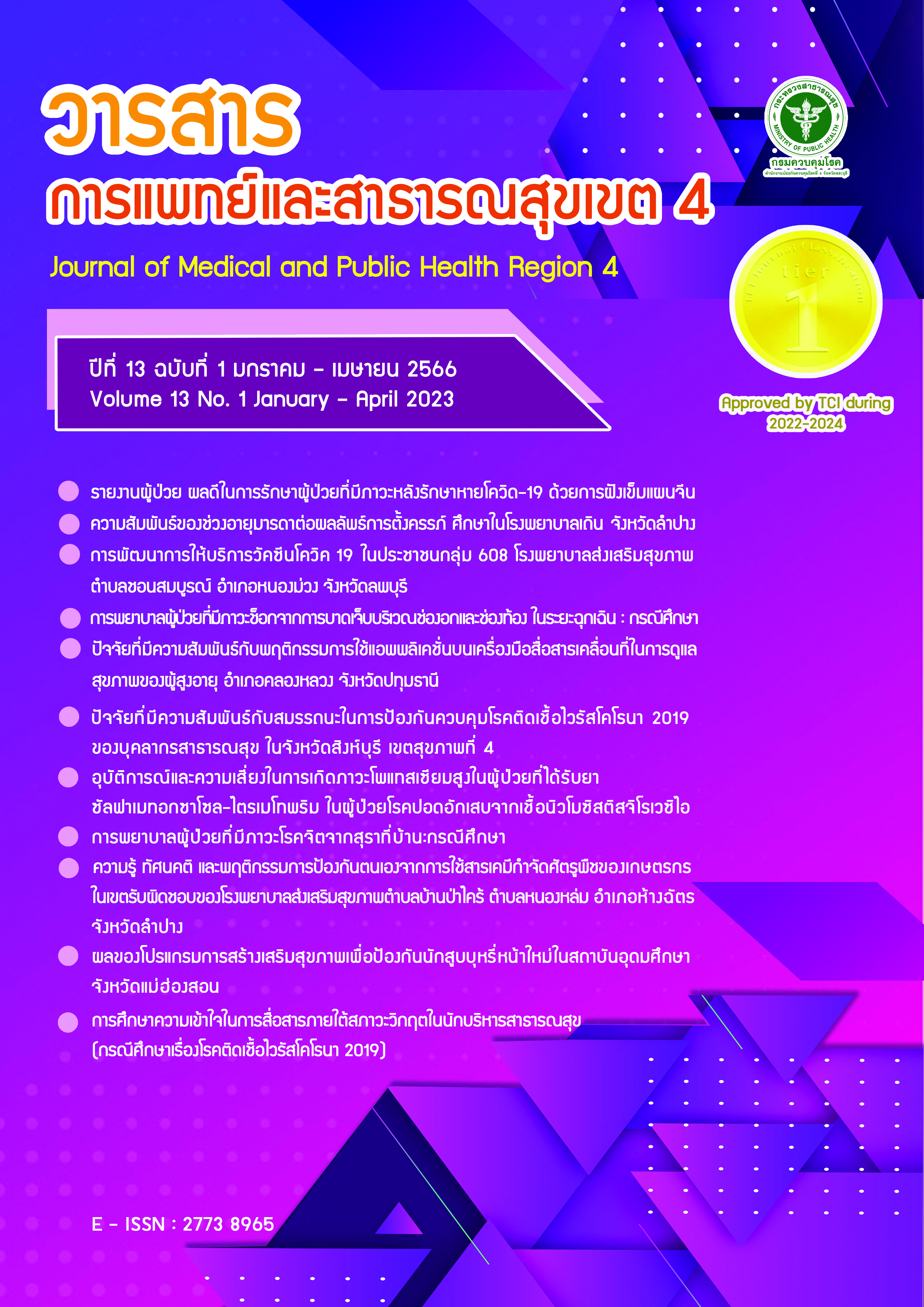Nursing home care of Alcohol induced psychosis patients: a case study
Main Article Content
Abstract
Caring of patients with alcohol induced psychosis is a challenging role for psychiatric nurses. The most alcohol-related psychosis patients returned to alcohol drinking and non-compliance for medicine after discharge from hospital. As a result, the effectiveness of treatments was reduced recurrence with mental illnesses. Moreover, the guidelines for alcohol dependence were few used in physical hospitals then patients with alcohol induced psychosis lacked of continuity in monitoring. This article focused on the nursing process for patients with alcohol induced psychosis and visited the patients in the community. The main goals were focused on active promotion, prevention, treatment, and rehabilitation. The most patients lost an appointment and non compliance after discharging and recurrence with alcohol induced psychosis. Therefore, the intervention such as health education, hallucination management, and motivation interviewing for stopping alcohol use were important for develop their self-awareness, inspiration, compliance therapy, and continuing care.
Article Details

This work is licensed under a Creative Commons Attribution-NonCommercial-NoDerivatives 4.0 International License.
References
Roadmap for the development of a system of care for people with binge drinking problems (P.O.S.) Department of Mental Health Ministry of Health Office of The Health Promotion Fund (NSF), "Screening and Rehabilitation Practices for People with Binge Drinking Problems," Mental Health Literacy Archive. Department of Mental Health, accessed 2023 January 31. Available from: https://www.dmhelibrary.org/items/show/1212.
National Statistical Office. The Smoking and Drinking Behavior Survey 2021. National Statistical Office of the National Economic and Social Development. Bangkok; 2021
Department of Mental Health, Ministry of Public Health. Guidelines for continuous monitoring of psychiatric patients with alcohol, drugs and substance abuse. Bangkok : Prosperous Plus. 2020
American Psychiatric Association [APA]. Diagnostic and Statistical Manual of Mental: DSM-V Disordes. (5thed.) text revision. Washington, DC: Author; 2022.
Engelhard CP, Touquet G, Tansens A, De Fruyt J. [Alcohol-induced psychotic disorder: a systematic literature review]. Tijdschrift Voor Psychiatrie 2015;57(3):192-201.
Ruichuan W , Xiaohe F, Weibian Y, Dan S ,Limping W , Shujun Z. Alcohol-Induced Psychotic Disorder with Suspected Pulmonary Embolism: A Case Report. Journal of Clinical Review & Case Reports 2020;5(11):517-9.
Thanoi S. Brain and neurotransmitters Disorders in Substance Abuse. Phitsanulok: Naresuan University Press; 2018. (in Thai)
Wongpanarak N, Chaleoykitti S. The Role of the Nurse in Addiction Counseling. Journal of The Royal Thai Army Nurses 2018;19(1): 16-23. (in Thai)
Wongpanarak N . Nursing of drug addicts. First Edition. Mahasarakham: Kakaia; 2018.
Chansirimongkol B. Integrated Rehabilitation Program Performance of alcoholic and drug abuse patients with psychiatric comorbidities. Bangkok: Prosperous; 2015. (in Thai)
Chang Y-C, Chou FH-C. Effects of Home Visit Intervention on Re-hospitalization Rates in Psychiatric Patients. Community Mental Health Journal 2015 ;51(5):598-605.
Heijdra Suasnabar JM, Hipple Walters B. Community-based psychosocial substance use disorder interventions in low-and-middle-income countries: a narrative literature review. International Journal of Mental Health Systems 2020;14(1).


